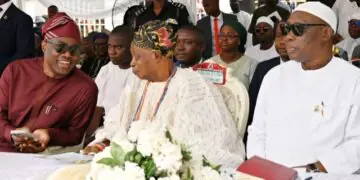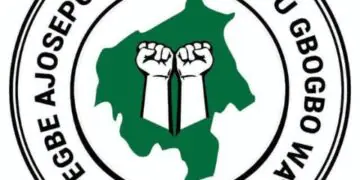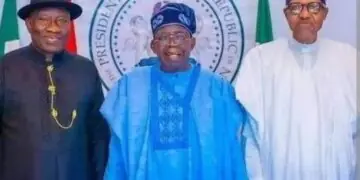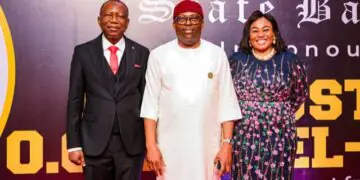“Nigeria must go beyond cyclical lamentation. A truly progressive future demands honest dialogue, constitutional restructuring, and a leadership model rooted in service—not survival.”

Nigeria, Africa’s most populous country and one of its largest economies, is a paradox of immense potential, consistently undermined by its historical baggage, fractured leadership, and uncoordinated development strategies. From colonial exploitation to modern-day misgovernance, the nation’s journey has been anything but linear.
For Nigeria, it has been a history of negative colonial inheritance, political struggles, economic instability, and disjointed nationhood. From governance through politics, economy, and the quest for national unity, the issue centres around a weather-beaten historical narrative, while questioning the road ahead. Nigeria’s story is one of promise under pressure.
The country has continued to wrestle with deep-rooted challenges passed down from a distorted colonial history. With every decade, the same questions resurface: Why does Nigeria struggle to fulfill its potential? What must change?
This is an attempt at a comprehensive sectoral analysis—past and present—framed around five critical themes: colonial legacy, leadership, political development, economic structure, and national unity.
A Warped Colonial Bequeath: A Union Without Unity
When Britain amalgamated the Northern and Southern protectorates in 1914, they weren’t building a nation—they were creating a convenience. The administrative union ignored ethnic, religious, and cultural identities, laying the groundwork for future crises for Nigeria.
Impacts Of Colonial Era
The British colonialists succeeded in creating in Nigeria artificial borders and administrative divisions; economic extraction rather than value creation, and promotion of regional rivalries for easier control.
Still in operation in Nigeria are centralised governance systems that ignored indigenous structures. There are also an interplay of economic dependency on raw materials exportation; favouritism among regions, creating early political rivalry among Nigerians.
Legacy Today
Nigeria inherited a centralised system unsuited to its diverse makeup. The struggle to build a truly federal system continues to plague the federation.
Unending Cycle Of Bad Leadership And Betrayals
Since gaining independence in 1960, the Nigerian leadership trajectory has largely oscillated between hope and heartbreak. Civilian and military regimes alike have been marred by corruption, nepotism, and policy inconsistency.
Nigeria has seen 16 heads of state—military and civilian alike—but true transformational leadership remains rare. From the First Republic to the present Fourth Republic, misgovernance has stalled national development.
Key Failures
In Nigeria today, noticeable key national failures included massive corruption scandals (e.g., P&ID, oil subsidies); nepotism and ethnic favouritism in appointments; and poor public service delivery in health, education, and infrastructure.
The prevailing situation across the land made Professor Chinua Achebe to declare, and rightly so: “The problem with Nigeria is simply and squarely a failure of leadership.”
Nigeria, Democratic In Name, Dysfunctional In Practice
What is obtainable in the political realm in the country is stunted political development. While democracy returned in 1999, many argued that Nigeria has only managed electoral rituals—not democratic outcomes. Political parties lack ideological depth, as elections are often marred by vote-buying and violence.
Systemic Weaknesses
Prevalent in Nigeria today are what has come to be seen as rubber-stamp legislature and politicised judiciary; repeated credibility challenges synonymous with the Independent National Electoral Commission (INEC) and preponderance of youth and women under-representation.
Current Flashpoints
The 2023 general election has reignited debate about transparency, voter suppression, and the credibility of democratic institutions. Added to this is the current gale of mass defection of political gladiators, including incumbent governors and chieftains of other political parties, into the ruling All Progressives Congress (APC), a situation that is fast turning Nigeria into a one-party state.
However, Nigerians seem to have seen through the veil of defections and the intentions. Mr Richard Akinnola, a critic and activist, has this to say in his “Welcome, One-Party State” on the current development in Nigeria: “For all l care, all governors and legislators in the “opposition” parties can defect to the ruling party, so that we can effectively have a one- party state. After all, didn’t the five parties during Abacha “transition” period, adopt him as their sole candidate? Didn’t the whole charade end up ignominiously?
“The current political opportunism is not lost on some of us. At the near future, we shall also chronicle the current political charlatanism, steeped mercantilist predilections.
“Many supposed political heavyweights defect to ruling parties for personal, opportunistic reason, particularly in our clime. Adams Oshiomhole, then as APC Chairman once said that once you join the APC, your sins are forgiven. In effect, some join in order to have a soft-landing with the EFCC because their sins would be forgiven.
“In the same token, political defectors to the ruling party (irrespective of the ruling party in power), mostly do so to evade prosecution and, if already being prosecuted, to get soft landing (we know how it’s being done in our clime). Members of the ruling party are in dancing mood over the emerging one-party state, because they believe APC is the best thing to happen to Nigeria after the 1914 amalgamation.
“The good thing is that at the appropriate time in the near future, there are people who would chronicle their deeds. Na here we dey. No leave, no transfer. Welcome, one-party state.”
Distorted, Disjointed Economic Growth: Rich Nation, Poor People
Despite impressive GDP figures, over 60 per cent of Nigerians are reportedly living in multidimensional poverty in the country. The economy has grown in fits and starts—often distorted by oil booms and busted by corruption.
Symptoms Of A Fragile Economy
Glaringly obtainable in Nigeria are glaring symptoms of a fragile economy, vis-a-vis sole and heavy reliance on oil revenues; weak manufacturing and low industrial productivity and underdeveloped infrastructure and erratic power supply.
Issues With Contemporary Reforms
Some economists saw the removal of fuel subsidy and unification of exchange rates as necessary painful route toward recovery, but they have largely caused more hardships for the people. Without production-focused reforms and social buffers, inequality may continue to grow wider in Nigeria.
Nigeria: Still A Country, Not Yet A Nation
National identity remains a contested concept in Nigeria. Calls for secession in the South-East, regional self-determination in the South-West, and jihadist insurgency in the North-East reflect a country deeply fragmented.
Root Causes
Some easily identifiable root causes of these inherent divisive tendencies across the country included (but are not limited to) uneven development and perceived marginalisation; resource control disputes and revenue sharing imbalance; ethno-religious conflicts and elite manipulation of identities.
The situation has continued to reinforce the assertion by one of the founding fathers of the country, Chief Obafemi Awolowo: “There was no nation called Nigeria before the British came.”
Nation-Building Beyond Rhetoric
Nigeria must go beyond cyclical lamentation. A truly progressive future demands honest dialogue, constitutional restructuring, and a leadership model rooted in service—not survival.
Key Recommendations
•Restructure for real federalism through the empowerment of each region to their manage resources and security.
•Meritocracy in governance via appointments based on competence, not ethnicity or politics.
•National reconciliation efforts to heal wounds of past injustices.
•Investment in human capital through the prioritisation of education, health, and skills training.
Final Thoughts
Nigeria is not beyond redemption, but time is running out. The crossroads moment is here again. Will the country choose the path of renewal or continue to circle the drain of dysfunction? Only visionary leadership, engaged citizens, and courageous reforms can redirect the country toward a truly united and prosperous future.
•Falade is the CEO/Editor-in-Chief of Newscoven.com.





























